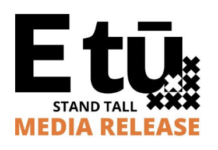Our review of the 2021 budget and responses to it, were disappointing with regards to the climate change emissions reductions needed to be made by our Government to avoid a catastrophe quickly approaching us all, according to a new OECD report.
“Emissions would need to peak before 2030 to give us a fighting chance of achieving this”.
OECD directs our Government to stop the increase of global climate change emissions before 2030, and the NZ 2021 budget does not mention anything about their plans to achieve this goal.
We agree with Greenpeace Director Russel Norman today in his statement on “The Nation” to Tova O’Brien that in the 2021 Budget, there was no mention of plans how to plan to reduce the two major climate emitters in NZ today.
These are namely “Farming and Transport”, so Government needs to move directly this year to set out the plans to reduce both these major emitters as are also highlighted in the OECD report above. “Emissions would need to peak before 2030 to give us a fighting chance of achieving this”.
If we fail then OECD warns us that; “The average global temperature could rise by 3-6 degrees Celsius by 2100 without urgent action. To limit the rise to 2 degrees Celsius, we need zero net greenhouse gas emissions by the end of the century.”
Importantly days ago press released a statement from the ‘G7’ leaders, of the major countries in that economic bloc, who has committed themselves to the reduction of climate emissions to keep temperature rise below 1.5 C by 2030, so we in NZ need to catch up to the world now not later.
“The world’s major nations have taken further significant steps to help limit climate change.
G7 environment ministers have agreed that they will deliver climate targets in line with limiting the rise in global temperatures to 1.5C.
That’s far more ambitious than the previous 2C maximum.
The move to keep their policies in line with 1.5C implies much faster action to cut emissions by 2030, rather than by mid-century.”
We see the best way is to use rail freight, to reduce road transport of freight around this county that has trebled since 21 years ago according to the statistics from truck movements we have reviewed.
The benefits are to reduce carbon emissions by carrying half the freight by rail and the reminder by road, as this will reduce the truck emissions and overuse of energy use for those road repairs going on continuously for over use of heavy truck use of our ‘light–duty’ single laned regional roads that are always in poor repair.
Many other countries are now improving their rail services and our time has come, to provide a balance to transport services around NZ provinces, and reduce transport carbon emissions to play our part to reduce climate change and disaster facing our future generations.





